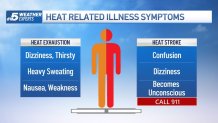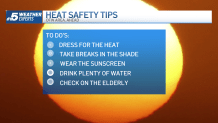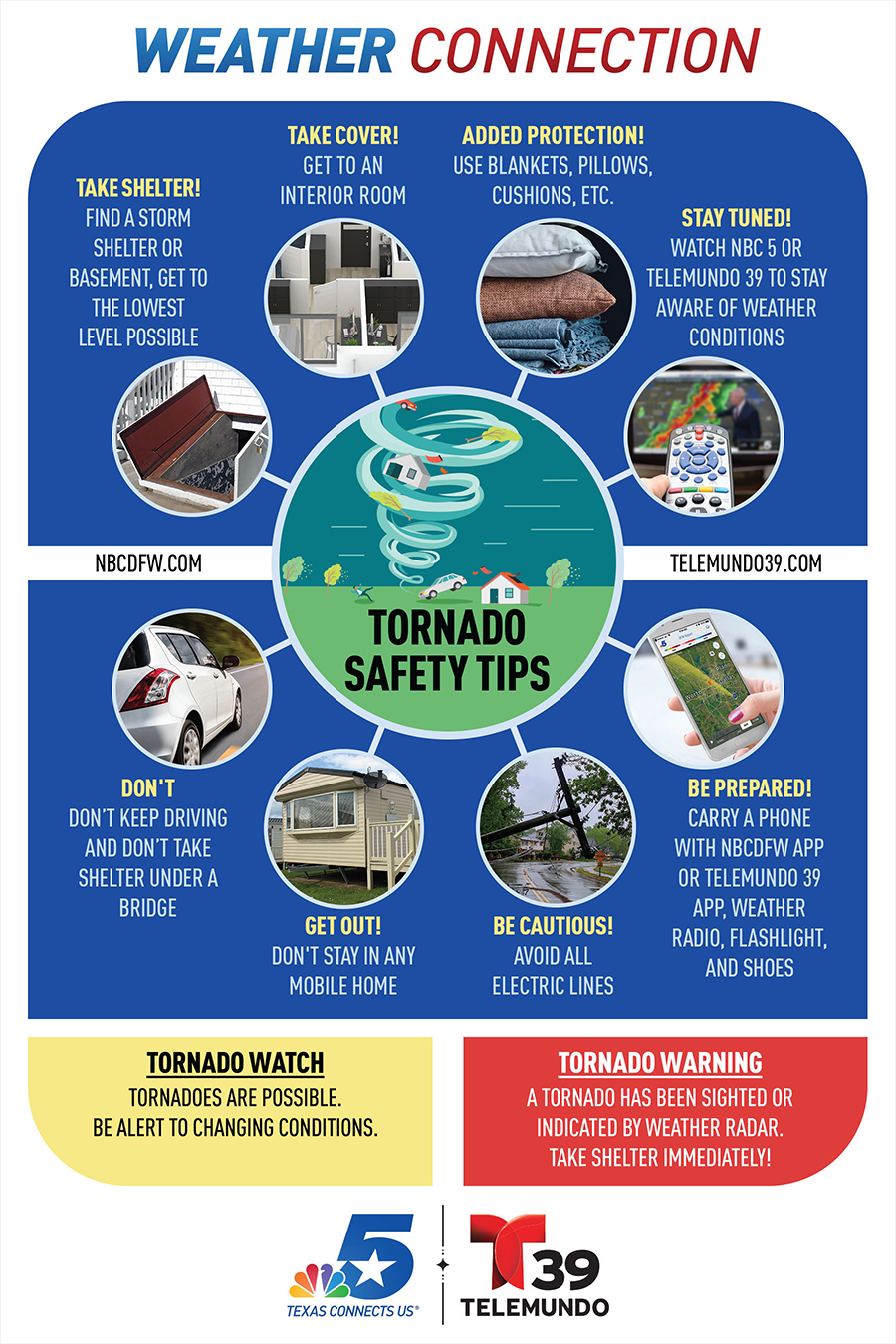High temperatures continue across North Texas into the work week.
Extreme heat like this can cause heat-related illnesses to come on quickly. It is important to recognize the symptoms and know what to do.
Latest Forecast from the NBC 5 Weather Experts
In the case of heat exhaustion, you want to move someone to a cooler area and loosen their clothing. Provide sips of cool water. Seek medical attention if symptoms don’t improve. In the case of heat stroke call 911 immediately.
Get DFW local news, weather forecasts and entertainment stories to your inbox. Sign up for NBC DFW newsletters.

Heat-related illness is preventable. Reduce outdoor activities to the morning or evening hours. Wear lightweight, loose-fitting clothing. Drink plenty of water. If you are out in the heat take frequent breaks in the shade or air conditioning.
This is the first big heat wave of the season. DFW Airport has already tied a record high of 103 degrees on Saturday and more records could fall.

KNOW THE SIGNS OF HEAT EXHAUSTION AND HEAT STROKE
Symptoms of heat exhaustion may include muscle cramps, paleness, sweating, nausea, and vomiting. MedStar said children and the elderly are especially susceptible.
Heatstroke is a life-threatening problem that occurs when the body suffers from long, intense exposure to heat and loses its ability to cool itself. MedStar said some of the most common signs of heatstroke include confusion, vomiting, alteration in sweating, hot and flushed skin, rapid heart rate, decreased sweating, shortness of breath, decreased urination, increased body temperature, or convulsions.
Heatstroke is a medical emergency. If you or someone you know starts experiencing any of the symptoms above, immediately call 9-1-1.
CONTINUING WEATHER COVERAGE
Stay up to date with the latest weather forecast from NBC 5's team of Weather Experts by clicking here or by watching the video below.

Be prepared for your day and week ahead. Sign up for our weather newsletter.
HOW TO AVOID HEAT-RELATED ILLNESSES
While heatstroke and heat exhaustion are common this time of year, they can be prevented. Here are some of MedStar's tips for avoiding heat-related illnesses:
- Hydrate: Drink plenty of water during the day, especially if you are engaged in any strenuous activity. Sports drinks are a good choice if you're exercising or working in hot conditions, but water is a good way to hydrate as well.
- Ventilate: Stay in a place where there is plenty of air circulating to keep your body cool. If you are indoors and don't have access to air conditioning, open windows and use a fan.
- Cover Up: Wear light-colored and loose-fitting clothing to avoid absorbing the sun's light and trapping heat. Wear a hat to shield yourself from the sun, but once you feel yourself getting warm, remove any items covering your head that can trap heat close to your body.
- Limit Activity: Heatstroke can occur in less than an hour when you are participating in strenuous activities on a hot day. If you feel yourself getting hot or light-headed, stop your activity and rest in a cool place out of the sun. Be sure to drink water or a sports drink before, during, and after any strenuous activity.
- Check on Loved Ones: The elderly are especially vulnerable to heat-related emergencies. Many elderly residents are not aware of how hot it may get in their residences. Call on older friends and family members regularly to assure they are doing okay.



